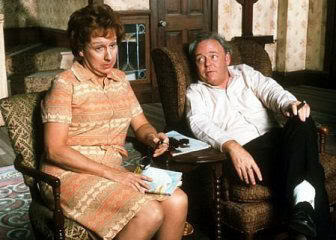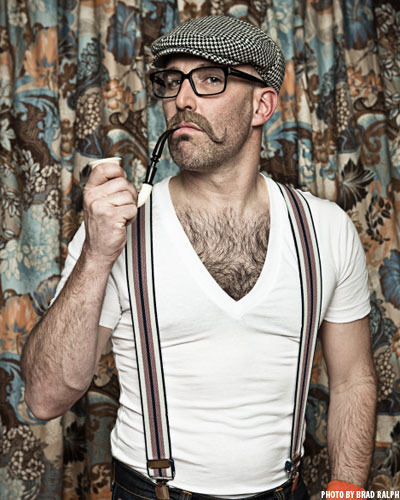Donald Miller's Blog, page 106
April 5, 2012
The Devastating Power of Lies in a Relationship
 I've only had two friends (that I know about) who've looked me in the eye and told me lies. Both of them were trying to cover up mistakes. I certainly had grace for their mistakes, but I've wondered looking back if I didn't have grace for their lies. Neither of these two friends are in contact anymore. We don't talk. Being in a relationship with somebody who lies is tough. It's not that you don't love them or care about them, it's just that you can't connect. Without trust, there's no relationship.
I've only had two friends (that I know about) who've looked me in the eye and told me lies. Both of them were trying to cover up mistakes. I certainly had grace for their mistakes, but I've wondered looking back if I didn't have grace for their lies. Neither of these two friends are in contact anymore. We don't talk. Being in a relationship with somebody who lies is tough. It's not that you don't love them or care about them, it's just that you can't connect. Without trust, there's no relationship.
Henry Cloud and John Townsend say that people lie for one of two reasons. The first is out of shame or fear. Somebody may believe they won't be accepted if they tell the truth about who they are, so they lie. (You can see how religious communities that use shame and fear to motivate might increase a person's temptation to lie, then.) People who lie for this reason can get better and learn to tell the truth. Until they do, however, it's impossible to connect with them, all the same. The second kind of liar is less fortunate. Some people lie simply because they are selfish. These liars are pathological. They will lie even when it would be easier to tell the truth. Cloud and Townsend warn that we need to stay away from these people. Personally, I think people like this are pretty rare, but I agree, we simply can't depend on them emotionally or practically.
Still I wonder if people who lie understand what they're doing. I think some people want grace and certainly they can get grace, but when we lie, we make the people we are lying to feel badly about the relationships and about themselves. We like people who make us feel respected, cared about and honored. Lying to somebody communicates the opposite.
Here are the things that lies did to my two relationships:
• When my friends lied, I felt disrespected and unimportant. They didn't seem to care about me or trust me enough to tell the truth. This made me feel bad about myself, as though I were not important or trustworthy enough to be told the truth.
• When I found out the extent of one of the lies, I felt like a fool. Technically, my friend didn't really lie. She just told me "part" of the truth. It was as though she were testing out whether she was safe to be vulnerable. (She told many other lies, but this was just one of them.) But it backfired. When I found out things were worse than she'd made them seem, I felt tricked and deceived. Again, without meaning to, she'd made me feel bad about myself because I felt like somebody who could be conned.
• I thought less of my friends. I knew they were willing to "cheat" in relationships. When we lie, we are stealing social commodity without having earned it. People can lie their way into power, and in one instance with a friend, she lied her way into moral superiority. Still, none of the authority or moral superiority (such a thing exists, and while it's misused, it's not a bad thing not unlike intellectual superiority or athletic superiority. It just is. An appropriate use of those two examples of superiority might be to lead a team or teach a class.)
• I felt sad and lonely. When we think we are getting to know somebody, we are giving them parts of our hearts. But when they lie, we know they've actually held back their hearts while we've been giving them ours. This made me feel lonely and dumb.
• I felt like I couldn't trust them. The only thing more important than love in a relationship is trust. Trust is the soil love grows in. If there's not trust, there's no relationship. When my friends lied, our trust died. As much as I wanted to forgive them, and feel like I did and have, interacting with them was no longer the same. I doubted much of what they said. Sadly, I think both of them began to tell more and more of the truth. But it didn't matter. Once trust is broken, it's extremely hard to rebuild.
• If they didn't confess (and in one relationship lied in their confession) I felt like they didn't care enough about me to come clean and make things right. They were still thinking of themselves.
 Here's what didn't happen. I didn't think less of them, and while I was angry, I wasn't angry because I thought they were a bad person. The person who lied probably assumed I felt such things, but I didn't. What really happened was I felt terrible about myself and when somebody makes us feel bad about ourselves, we tend to get hurt and move away.
Here's what didn't happen. I didn't think less of them, and while I was angry, I wasn't angry because I thought they were a bad person. The person who lied probably assumed I felt such things, but I didn't. What really happened was I felt terrible about myself and when somebody makes us feel bad about ourselves, we tend to get hurt and move away.To be sure, somebody who lies has a lot of other stuff going on and it's not so easy to come clean. For a liar to change, they need a lot of help. Lying is manipulation, so if a person is a manipulator and gets caught lying, they are most likely going to keep manipulating. They may tell more lies to cover their lies, or manipulate by playing the victim. They may try to find things other people have done that they see as worse and try to make people focus on that. What they will have a hard time doing is facing the truth (which would be the easiest way out of their dilemma. It's just that they don't know how to do it. (They're survivors, scrappers and have learned to cheat to stay alive socially.)
If you've lied in a relationship, though, and are truly wanting to LEARN to live on the up and up, what can you do? Well, there's plenty. Life isn't over yet. Here's some places to start:
• Confess. And don't half confess (just another lie) but actually confess. This may take some time for you. You may have to sit down with a pen and paper and write it all down. Your mind will want to lie, but you have to tame your mind. It may take you some time to even understand what the truth really is. You're going to feel ashamed and at risk, but you have to go there anyway. People are much more kind and forgiving than you think. And if they're not, you should confess and find people who are more safe.
• Accept the consequences. You're going to have to pay for your lies. People will not and should not trust you as much as they did before. However, getting caught in a lie and confessing a lie are two different things. The former will cost you a bit, but you can rebuild quickly. The latter will cost you everything. Another thing to consider is that the truth might have lost you a small battle, but you'd have won the war because in the long run people would have trusted you. From here on out, be willing to suffer the slight, daily consequences of telling the truth. You'd be surprised at how much less tension there is in your life when you walk openly and honestly.
• Don't expect the relationship to be the same, but if the person doesn't forgive you, just know you can move on. You've confessed and hopefully apologized and you aren't beholden to them anymore. They need to wrestle with forgiving you and that's now their burden. It's an unfair burden, but we all have to face such things.
• Don't lie anymore. It's not important that everybody like you or approve of you. Allow people to get used to who you are. Telling the truth may mean you don't get to be in control anymore or that people won't like you as much. That's fine. At least they are interacting with the real you. The deep connections you'll make from telling the truth are worth it.
The Devastating Power of Lies in a Relationship is a post from: Donald Miller's Blog
April 4, 2012
Thoughts on Getting Dumped, a Guest Post from Bob Goff
It's a week of guest posts on the blog. But fear not, next week is already loaded with great, slightly controversial and certainly fun content. Today, another guest post from my long-time friend Bob Goff. I asked Bob months ago if, before his book Love Does comes out, I could feature some of the content. So, you're reading it here first. You'll love the book. When he sent me the final chapter last year, it cost me a day. I say it cost me a day because I couldn't work anymore. I was that devastated. Love Does is a collection of simple (read "hits you from the side") essays about faith, love, forgiveness, frustrations and ultimately God. Bob paints a hopeful picture of a life of faith, but it's the kind of faith that takes action (great characters do things.) Anyway, another excerpt from Love Does:
 I was in college and thought I wanted to be a forest ranger and later, a surfer. Then I got my first "dear Bob" letter from someone I really cared for who didn't want to date a forest ranger or a surfer any more.
I was in college and thought I wanted to be a forest ranger and later, a surfer. Then I got my first "dear Bob" letter from someone I really cared for who didn't want to date a forest ranger or a surfer any more.
I've learned that God sometimes allows us to find ourselves in a place where we want something so bad that we can't see past it. Sometimes we can't even see God because of it. When we want something that bad, it's easy to mistake what we truly need for the thing we really want. When this sort of thing happens, and it seems to happen to everyone, I've found it's because what God has for us is obscured from view, just around another bend in the road.
In the Bible, the people following God had the same problem I did. They swapped the real thing for an image of the real thing. We target the wrong thing and our misdirected life's goal ends up looking like a girl or a wide-brimmed hat or a golden calf. All along, what God really wants for us is something much different, something more tailored to us.
 It's in my nature, maybe all of our natures, to try to engineer things. So I skew the answers to get what I thought I wanted. But when I do that, I also get what I don't want, too, like a cot and a room full of guys. The first time I wanted someone to care for me as much as I cared for her, she picked someone else and I tried to talk her out of it. If I had been successful, I wouldn't have experienced love in the unique way that I have. I wouldn't have found who and what God tailor-made for me.
It's in my nature, maybe all of our natures, to try to engineer things. So I skew the answers to get what I thought I wanted. But when I do that, I also get what I don't want, too, like a cot and a room full of guys. The first time I wanted someone to care for me as much as I cared for her, she picked someone else and I tried to talk her out of it. If I had been successful, I wouldn't have experienced love in the unique way that I have. I wouldn't have found who and what God tailor-made for me.
I'm kind of glad I didn't end up being a forest ranger or a surfer. I'm even glad things turned out the way they did after I drove away from UCLA. While painful at the time, I can see now, many years later when I look in the rearview mirror of my life, evidence of God's tremendous love and unfolding adventure for me. I've received many letters since then in my life that started out "Dear Bob." Some were letters so thick they had to be folded several times to fit in the envelope. They left me feeling as folded when I read their words with shattering disappointment. Still, whatever follows our "Dear Bobs" is often another reminder that God's grace comes in all shapes, sizes, and circumstances as God continues to unfold something magnificent in me.
And when each of us looks back at all the turns and folds God has allowed in our lives, I don't think it looks like a series of folded-over mistakes and do-overs that have shaped our lives. Instead, I think we'll conclude in the end that maybe we're all a little like human origami and the more creases we have, the better.
* You can pre order Love Does today. It'll be out officially on May 1 but rumor has it they've already shipped tons of them, so you may get it much sooner.
Thoughts on Getting Dumped, a Guest Post from Bob Goff is a post from: Donald Miller's Blog
April 3, 2012
Want To Do Meaningful Work? Keep Reading. Literally.
Today's guest post is by one of my favorite Portlandites (and people in general) Justin Zoradi. Justin runs a global education organization empowering young people to become leaders and fight poverty. He's guest posted before and I hope he offers more to this blog in the future. You can read more of Justin's musings over at www.justinzoradi.com

A survey by The Jenkins Group, an independent publishing services firm, has shown that millions of Americans never read another book after leaving school.
Check out the stats:
33% of high school graduates never read another book for the rest of their lives.
42% of college graduates never read another book after college.
80% of U.S. families did not buy or read a book last year.
70% of U.S. adults have not been in a bookstore in the last five years.
57% of new books are not read to completion.
While these statistics are obviously troubling, I don't think any of us can honestly say we're that surprised.
But what I'm intrigued by is not the people who neglect to read books, but rather, theones who continue to do so.
I've noticed a unique trend among my friends who've thrived in their 20's and 30's. These special people have continued to seek out challenging books and ideas, allowing their beliefs and opinions to grow and evolve. They've stretched their worldviews by traveling beyond the borders of their hometowns, many of them abroad for substantial periods of time. They took risks, flourished in foreign places, taken jobs outside of their original field of study, and shared late night meals with people different than them.
For the most part, these people can be described in four unique ways: They are Readers, Travelers, Empathizers, and Innovators.
Raymond Mar, a professor at York University, noticed a link between reading and empathy. In a study of children, Mar found that the more a child reads, the likelier he or she is to be able to understand the emotions of others.
There is a stereotype in this country that the smarter you are, the more narcissistic you become. Maybe I choose great friends, but from my experience, I don't find that to be entirely true. Do I know people who are insanely intelligent and whose egotism borders on megalomania? Of course. But for the most part, my peers who are readers, travelers, empathizers, and innovators have taken a fierce, others-centered stance. They want to make a difference, create change, and develop new ideas and products that contribute to society rather than just taking.
On the contrary, the people I know who haven't picked up a book since high school or college do their professional work just as passionately, but with "me"-centered blinders, unable to see the possibilities outside of themselves.
Egotism is the enemy of empathy. You can track back an inflated view of self to nearly all of the most insidious events in human history. Yes, the success of American culture has bold foundations in individualism and personal responsibility. But it's been skillfully matched by a deep sense of charity, innovation, and wonder, much of which comes from the exploration of new ideas and beliefs.
I'm not too worried about the lack of reading for the sake of the book industry or ensuring profit for publishing houses.
I'm worried that the lack of reading is a canary in the mineshaft, warning us of a stifling narcissism in our midst.
If you are a reader, keep going and ensure the power of new ideas moves you to empathize and innovate. If you aren't a reader, couple an interesting non-fiction piece with some young adult fiction and start plugging away. The world will thank you for it. And you'll probably become obsessed with Harry Potter.
- jz
Want To Do Meaningful Work? Keep Reading. Literally. is a post from: Donald Miller's Blog
March 30, 2012
How to Know if You're a Controlling Person
If you'd have told me a month ago I had codependent tendencies, I'd never have believed you. I don't like it when people try to control me (especially indirectly through manipulation) and I'd have sworn I don't do a thing to try to control others. But it turns out that isn't true. For all I know, I might even be manipulating you right now. Raise your hand if you think I'm trying to control you. (I see that hand. Now put it down. Now scratch your nose.)
 I realized I was a controlling person not long ago when a therapist caught me in the act. I was wondering out loud why a friend was doing what she was doing and the thearpist questioned why I was trying to get inside somebody else's head.
I realized I was a controlling person not long ago when a therapist caught me in the act. I was wondering out loud why a friend was doing what she was doing and the thearpist questioned why I was trying to get inside somebody else's head.
"What does it matter why people do what they do? Are you trying to predict behavior to gain a sense of security?"
It was a terrific observation. Trying to figure out why people are doing what they are doing is a preface to trying to control or influence them indirectly. If I really wanted to know why they were doing what they were doing, I could just ask. But I didn't want to ask because it was none of my business. They had a right to think and do as they wished.
Turns out controlling tendencies can hide anywhere. And most of the time (if not all the time) we don't know we're doing it.
The therapist went on to explain how relationships should work. She put three large couch pillows on the floor and stood on one of the outside cushions. She then had me stand on the other outside cushion so there was an empty cushion between us.
"This is my pillow" she said, "and that is yours. This is my life and that is yours. The pillow in the middle represents our relationship. So, my responsibility is all about the pillow I'm standing on and yours is about yours. Together, we are responsible for the relationship. But at no point should I be stepping on your pillow."
 What she meant by that was this: I can't change anybody. I can't force them or guilt them or shame them into doing anything. All I can do is stay on my pillow and ask myself whether or not I like the relationship. If I don't, I can tell the other person what I want in a relationship and see if they want the same thing. If not, I move on, and so do they.
What she meant by that was this: I can't change anybody. I can't force them or guilt them or shame them into doing anything. All I can do is stay on my pillow and ask myself whether or not I like the relationship. If I don't, I can tell the other person what I want in a relationship and see if they want the same thing. If not, I move on, and so do they.
In marriage, of course, it's much harder. You can't just walk away. But in business relationships and friendships, and even in dating, the model works quite well.
I found the metaphor freeing, actually. No more wishing people would change or explaining "if they only did it this way we would be better friends." Instead, I just say "this relationship doesn't work" and there's nothing I can do about it. If I've explained what I want in a relationship but the other person isn't on board, no harm no foul.
It's difficult in some relationships, I know, because sometimes you have to watch people destroy their lives, but that's just the point. Their lives are theirs to destroy.
I found the principle to be true in business, too. When somebody tries to sell a little too hard, they are on my pillow so I back off or set better boundaries. It's also a great way to find and enter into relationships with clients. If they want what you're selling, great, and if not, that's also great. Business relationships work better when they're natural and not forced and everybody stays on their pillow.
And in my spiritual life it's the same. If somebody is giving me a guilt trip, they're on my pillow. I believe much of evangelicalism is influenced by leaders who don't realize they are standing all over their congregation's pillows. Some leaders feel incredibly insecure unless they are managing the lives of everybody around them. Make no mistake, this isn't strength, it's incredible weakness. Just tell the truth, explain the consequences, and let people make their own decisions.
Here are a few ways to know whether you might be a controlling person:
• You imagine a life in which somebody else was different, and indirectly try to affect their change.
• You get angry when things aren't going your way and you let people know it.
• You can only be surrounded by people who are submissive to you.
• You give the silent treatment to people you are angry with.
• You are often tempted to show somebody the errors they don't see in themselves.
What ways do you tend to step on other people's pillows? Do you shame people (I'm guilty of that) or give them the silent treatment? How do you try to influence others without being direct or when their lives are none of your business?
How to Know if You're a Controlling Person is a post from: Donald Miller's Blog
How to Know if You’re a Controlling Person
If you’d have told me a month ago I had codependent tendencies, I’d never have believed you. I don’t like it when people try to control me (especially indirectly through manipulation) and I’d have sworn I don’t do a thing to try to control others. But it turns out that isn’t true. For all I know, I might even be manipulating you right now. Raise your hand if you think I’m trying to control you. (I see that hand. Now put it down. Now scratch your nose.)
 I realized I was a controlling person not long ago when a therapist caught me in the act. I was wondering out loud why a friend was doing what she was doing and the thearpist questioned why I was trying to get inside somebody else’s head.
I realized I was a controlling person not long ago when a therapist caught me in the act. I was wondering out loud why a friend was doing what she was doing and the thearpist questioned why I was trying to get inside somebody else’s head.
“What does it matter why people do what they do? Are you trying to predict behavior to gain a sense of security?”
It was a terrific observation. Trying to figure out why people are doing what they are doing is a preface to trying to control or influence them indirectly. If I really wanted to know why they were doing what they were doing, I could just ask. But I didn’t want to ask because it was none of my business. They had a right to think and do as they wished.
Turns out controlling tendencies can hide anywhere. And most of the time (if not all the time) we don’t know we’re doing it.
The therapist went on to explain how relationships should work. She put three large couch pillows on the floor and stood on one of the outside cushions. She then had me stand on the other outside cushion so there was an empty cushion between us.
“This is my pillow” she said, “and that is yours. This is my life and that is yours. The pillow in the middle represents our relationship. So, my responsibility is all about the pillow I’m standing on and yours is about yours. Together, we are responsible for the relationship. But at no point should I be stepping on your pillow.”
 What she meant by that was this: I can’t change anybody. I can’t force them or guilt them or shame them into doing anything. All I can do is stay on my pillow and ask myself whether or not I like the relationship. If I don’t, I can tell the other person what I want in a relationship and see if they want the same thing. If not, I move on, and so do they.
What she meant by that was this: I can’t change anybody. I can’t force them or guilt them or shame them into doing anything. All I can do is stay on my pillow and ask myself whether or not I like the relationship. If I don’t, I can tell the other person what I want in a relationship and see if they want the same thing. If not, I move on, and so do they.
In marriage, of course, it’s much harder. You can’t just walk away. But in business relationships and friendships, and even in dating, the model works quite well.
I found the metaphor freeing, actually. No more wishing people would change or explaining “if they only did it this way we would be better friends.” Instead, I just say “this relationship doesn’t work” and there’s nothing I can do about it. If I’ve explained what I want in a relationship but the other person isn’t on board, no harm no foul.
It’s difficult in some relationships, I know, because sometimes you have to watch people destroy their lives, but that’s just the point. Their lives are theirs to destroy.
I found the principle to be true in business, too. When somebody tries to sell a little too hard, they are on my pillow so I back off or set better boundaries. It’s also a great way to find and enter into relationships with clients. If they want what you’re selling, great, and if not, that’s also great. Business relationships work better when they’re natural and not forced and everybody stays on their pillow.
And in my spiritual life it’s the same. If somebody is giving me a guilt trip, they’re on my pillow. I believe much of evangelicalism is influenced by leaders who don’t realize they are standing all over their congregation’s pillows. Some leaders feel incredibly insecure unless they are managing the lives of everybody around them. Make no mistake, this isn’t strength, it’s incredible weakness. Just tell the truth, explain the consequences, and let people make their own decisions.
Here are a few ways to know whether you might be a controlling person:
• You imagine a life in which somebody else was different, and indirectly try to affect their change.
• You get angry when things aren’t going your way and you let people know it.
• You can only be surrounded by people who are submissive to you.
• You give the silent treatment to people you are angry with.
• You are often tempted to show somebody the errors they don’t see in themselves.
What ways do you tend to step on other people’s pillows? Do you shame people (I’m guilty of that) or give them the silent treatment? How do you try to influence others without being direct or when their lives are none of your business?
How to Know if You’re a Controlling Person is a post from: Donald Miller's Blog
March 29, 2012
Some Thoughts on Self Promotion and Why Arrogant People Think it's Wrong
As a somewhat cynical twenty-something, I looked down on people who promoted their work. To me, they were walking infomercials, always selling something. On a deeper level, I may have thought of these people as lacking humility or not trusting in God to provide.
 Times have changed, though, and now I'm that guy. About once a week I'm criticized for promoting my books (haven't done that in about two years though) or our movie, or the Storyline conference. About every fifth blog is an invitation to take part in something I'm doing. But I don't feel arrogant about it at all.
Times have changed, though, and now I'm that guy. About once a week I'm criticized for promoting my books (haven't done that in about two years though) or our movie, or the Storyline conference. About every fifth blog is an invitation to take part in something I'm doing. But I don't feel arrogant about it at all.
Here are a few reasons I promote my work:
1. My work isn't about me. It's about others. As I've gotten older I've lost interest in making myself look good and become more interested in creating great experiences for people or changing culture. To me, this is more interesting. It's still my name on the cover of the book or in the titles of the film, but I spend less money on clothes and haircuts because I'm distracted. Ever notice how people who don't promote themselves have an image of being cool and aloof that they spent months creating and practicing? You're not fooling us, hipsters, we know you're self centered all the same!
2. I believe in my work. I've seen the suff I've done change lives, provide mentors for kids, make people feel less lonely, save marriages and all that stuff. It took years, but I actually started to understand that in the way a doctor could help somebody with a medical problem, I could help them through an emotional problem. I promote my work because my work helps people.
3. I work with teams. I remember years ago being late turning in a book and about that same time my publisher let a bunch of people go. I was partly responsible for that. I cost people their jobs and it was a terrible feeling. I've decided to be a writer and to write with a publisher and that means I work with people. To not get out there and tell people about my work is arrogant and selfish. People are depending on me.
Conversely, here's the reality about all that cynicism about self promotion. Here are some reasons people don't promote their work:
1. Those who do not promote their work usually live off the backs of other people. I hear from a lot of ministers we should only promote Jesus. But if you're a minister, business people who promote their real-estate agencies, insurance agencies or their skills as a plumber are feeding your children. If you think you should only promote Jesus, you should stop taking money from anybody who advertises or works for companies that do. Lets be consistent, here.
God Himself created farming and created our bodies in such a way we have to eat. That means we have to work and the fact anybody can sit around reading books all day sharing their ideas (don't forget, that's exactly what I do) is a complete and total luxury. Not only this, but if we work for a large corporation, we'd better hope they advertise and promote the products we are making, otherwise we'd be out of a job. Not having to promote, in other words, is a luxury and should be seen as such.
 2. People who don't promote their work may not be humble at all, in fact, they may be too proud to be seen as a salesman. I used to think I was humble, but then I realized I didn't want to be one of those info-mercial guys and so my motivation was anything but humility. I was the opposite, I was proud. Too proud and too cool to sell anything. I was also poor and offering nothing to the world except my latest variation of a stupid mustache (No offense, stupid mustache wearers. God know's we need you at our coffee shops to create that artist vibe. We appreciate you.)
2. People who don't promote their work may not be humble at all, in fact, they may be too proud to be seen as a salesman. I used to think I was humble, but then I realized I didn't want to be one of those info-mercial guys and so my motivation was anything but humility. I was the opposite, I was proud. Too proud and too cool to sell anything. I was also poor and offering nothing to the world except my latest variation of a stupid mustache (No offense, stupid mustache wearers. God know's we need you at our coffee shops to create that artist vibe. We appreciate you.)
3. People who don't promote their work may not yet believe in their work. If you're a new singer/songwriter, you may just be figuring out whether you're any good. You may have doubts and so are sheepish. But people who know they are good have no problem standing in front of a crowd telling them they can buy their CD in the back. After all, if it's a good CD, who cares. They're actually offering a service.
4. People who don't promote their work aren't lost in their work. For me to get up in the morning and build the next piece of Storyline or work on the next chapter of a book is a thrill. I lose myself in the work. Working on a creative project is the best and most healthy way to escape, especially if you're working with a team. Far from being self centered, doing creative work for a living is a wonderful way to break free from constant narcissism.
5. People who don't promote their work don't have employees and associates. If you're a small businessperson, you likely have employees who count on you to get your name out there or the name of your products. Working with teams is a blast and we come to love those we work with. They've given their lives and their skills to you as a creative person or businessperson and you owe it to them to take confidence in your work and get it out into the marketplace.
6. Self promotion is not unholy. Occasionally I'll encounter some well-meaning religious person who thinks self promotion works against the fame of God. I whole-heartedly disagree. In his day, Billy Graham spent millions promoting himself and his crusades, all so people could come HEAR HIM TALK ABOUT GOD. Those who know Mr. Graham would never see him as arrogant. He was over himself. But that didn't mean God didn't give him a personality and a mouth and later a microphone. Flowers bloom and mountains tower not to take attention from God, but to display His glory. So if you're a dancer, dance, a singer, sing and if you write books, write them well. Lose yourself in the work and play with God in the creative process. And please, cut the false humility and religious crap about how you only promote Jesus. It's annoying. Get in touch with your own depravity and realize you're a scumbag like the rest of us and stop talking about how humble you are all the time. Learn to dance or something.
Of course, there are those who really are in it for themselves. I know, I know, they can be annoying. But don't roll your eyes at every artist who tells you about their new album or book or business. People have to feed themselves and their families and other people's families. And for heaven's sake, if you believe in your work, share it with the world.
What project do you want to share with my readership? Leave links in the comment sections. Let's see what you've been up to. It's time to believe in yourself. God made that mind of yours, show us how you've taken responsibility for that amazing fact and let us see what you've done with it.
Some Thoughts on Self Promotion and Why Arrogant People Think it's Wrong is a post from: Donald Miller's Blog
Some Thoughts on Self Promotion and Why Arrogant People Think it’s Wrong
As a somewhat cynical twenty-something, I looked down on people who promoted their work. To me, they were walking infomercials, always selling something. On a deeper level, I may have thought of these people as lacking humility or not trusting in God to provide.
 Times have changed, though, and now I’m that guy. About once a week I’m criticized for promoting my books (haven’t done that in about two years though) or our movie, or the Storyline conference. About every fifth blog is an invitation to take part in something I’m doing. But I don’t feel arrogant about it at all.
Times have changed, though, and now I’m that guy. About once a week I’m criticized for promoting my books (haven’t done that in about two years though) or our movie, or the Storyline conference. About every fifth blog is an invitation to take part in something I’m doing. But I don’t feel arrogant about it at all.
Here are a few reasons I promote my work:
1. My work isn’t about me. It’s about others. As I’ve gotten older I’ve lost interest in making myself look good and become more interested in creating great experiences for people or changing culture. To me, this is more interesting. It’s still my name on the cover of the book or in the titles of the film, but I spend less money on clothes and haircuts because I’m distracted. Ever notice how people who don’t promote themselves have an image of being cool and aloof that they spent months creating and practicing? You’re not fooling us, hipsters, we know you’re self centered all the same!
2. I believe in my work. I’ve seen the suff I’ve done change lives, provide mentors for kids, make people feel less lonely, save marriages and all that stuff. It took years, but I actually started to understand that in the way a doctor could help somebody with a medical problem, I could help them through an emotional problem. I promote my work because my work helps people.
3. I work with teams. I remember years ago being late turning in a book and about that same time my publisher let a bunch of people go. I was partly responsible for that. I cost people their jobs and it was a terrible feeling. I’ve decided to be a writer and to write with a publisher and that means I work with people. To not get out there and tell people about my work is arrogant and selfish. People are depending on me.
Conversely, here’s the reality about all that cynicism about self promotion. Here are some reasons people don’t promote their work:
1. Those who do not promote their work usually live off the backs of other people. I hear from a lot of ministers we should only promote Jesus. But if you’re a minister, business people who promote their real-estate agencies, insurance agencies or their skills as a plumber are feeding your children. If you think you should only promote Jesus, you should stop taking money from anybody who advertises or works for companies that do. Lets be consistent, here.
God Himself created farming and created our bodies in such a way we have to eat. That means we have to work and the fact anybody can sit around reading books all day sharing their ideas (don’t forget, that’s exactly what I do) is a complete and total luxury. Not only this, but if we work for a large corporation, we’d better hope they advertise and promote the products we are making, otherwise we’d be out of a job. Not having to promote, in other words, is a luxury and should be seen as such.
 2. People who don’t promote their work may not be humble at all, in fact, they may be too proud to be seen as a salesman. I used to think I was humble, but then I realized I didn’t want to be one of those info-mercial guys and so my motivation was anything but humility. I was the opposite, I was proud. Too proud and too cool to sell anything. I was also poor and offering nothing to the world except my latest variation of a stupid mustache (No offense, stupid mustache wearers. God know’s we need you at our coffee shops to create that artist vibe. We appreciate you.)
2. People who don’t promote their work may not be humble at all, in fact, they may be too proud to be seen as a salesman. I used to think I was humble, but then I realized I didn’t want to be one of those info-mercial guys and so my motivation was anything but humility. I was the opposite, I was proud. Too proud and too cool to sell anything. I was also poor and offering nothing to the world except my latest variation of a stupid mustache (No offense, stupid mustache wearers. God know’s we need you at our coffee shops to create that artist vibe. We appreciate you.)
3. People who don’t promote their work may not yet believe in their work. If you’re a new singer/songwriter, you may just be figuring out whether you’re any good. You may have doubts and so are sheepish. But people who know they are good have no problem standing in front of a crowd telling them they can buy their CD in the back. After all, if it’s a good CD, who cares. They’re actually offering a service.
4. People who don’t promote their work aren’t lost in their work. For me to get up in the morning and build the next piece of Storyline or work on the next chapter of a book is a thrill. I lose myself in the work. Working on a creative project is the best and most healthy way to escape, especially if you’re working with a team. Far from being self centered, doing creative work for a living is a wonderful way to break free from constant narcissism.
5. People who don’t promote their work don’t have employees and associates. If you’re a small businessperson, you likely have employees who count on you to get your name out there or the name of your products. Working with teams is a blast and we come to love those we work with. They’ve given their lives and their skills to you as a creative person or businessperson and you owe it to them to take confidence in your work and get it out into the marketplace.
6. Self promotion is not unholy. Occasionally I’ll encounter some well-meaning religious person who thinks self promotion works against the fame of God. I whole-heartedly disagree. In his day, Billy Graham spent millions promoting himself and his crusades, all so people could come HEAR HIM TALK ABOUT GOD. Those who know Mr. Graham would never see him as arrogant. He was over himself. But that didn’t mean God didn’t give him a personality and a mouth and later a microphone. Flowers bloom and mountains tower not to take attention from God, but to display His glory. So if you’re a dancer, dance, a singer, sing and if you write books, write them well. Lose yourself in the work and play with God in the creative process. And please, cut the false humility and religious crap about how you only promote Jesus. It’s annoying. Get in touch with your own depravity and realize you’re a scumbag like the rest of us and stop talking about how humble you are all the time. Learn to dance or something.
Of course, there are those who really are in it for themselves. I know, I know, they can be annoying. But don’t roll your eyes at every artist who tells you about their new album or book or business. People have to feed themselves and their families and other people’s families. And for heaven’s sake, if you believe in your work, share it with the world.
What project do you want to share with my readership? Leave links in the comment sections. Let’s see what you’ve been up to. It’s time to believe in yourself. God made that mind of yours, show us how you’ve taken responsibility for that amazing fact and let us see what you’ve done with it.
Some Thoughts on Self Promotion and Why Arrogant People Think it’s Wrong is a post from: Donald Miller's Blog
March 28, 2012
Why Conflict in Life is Terrific, and How to Change Your Attitude About It
Just about every good thing in life has come to us because we were not satisfied with something else. Dissatisfied with debt, we created a budget, dissatisfied with loneliness we joined a community.
 Conflict isn't a bad thing, it's a GREAT thing. Those who avoid conflict just create more and more conflict. Conflict avoidant people drive everybody around them crazy!
Conflict isn't a bad thing, it's a GREAT thing. Those who avoid conflict just create more and more conflict. Conflict avoidant people drive everybody around them crazy!
If we want to make a better life (and life is designed in such a way that we can MAKE it better) the key is to respond appropriately to conflict. Here are some suggestions for responding well to conflict:
1. Don't play the victim and act like conflict wasn't supposed to happen to you. Conflict is part of life, designed by God and it's not going away.
2. Don't give in to wishful thinking. There's no use wishing the problem away. This is a waste of time. Instead:
3. Take action. What can YOU do to make the situation better? Do you need to make amends with somebody? Do you need to remove yourself from a situation? Do you need to finish a project? Whatever it is, make it happen. Take action.
4. Don't be afraid to cause more conflict. Perhaps you need to end a working relationship or even let somebody down. Perhaps you need to finally tell the truth. Perhaps you need to pay for your mistakes. Whatever it is, be willing to create some conflict to finally move forward. You will have to do this eventually, anyway, it's just that the conflict is going to be worse. Jump now.
5. Make a list of the ways the conflict is making your life better. Are you learning something because of the conflict. Learn it now and learn it well so you don't have to repeat the third grade on this one. Is the conflict making you stronger, more empathetic, more self aware? Make a list of all the ways the conflict is improving your life and have a positive attitude about it.
There are many reasons conflict is good. In life and in art, you can't tell a good story without conflict. Lets learn to love it.
Why Conflict in Life is Terrific, and How to Change Your Attitude About It is a post from: Donald Miller's Blog
March 27, 2012
Turning Imagination into Action. Guest Post by Bob Goff
 By now, you've probably heard about Bob Goff. He's the construction lawyer who is changing the world by loving individuals. He's the American Consul to Uganda who closes major deals on a satellite phone from rural africa, stands between his children and an angry bear and hosts a parade down his street every year. In short, he's the most clear-thinking crazy man on the planet. And you know you're life is changing when you realize he makes sense. Anyway, I encouraged Bob to write a book a couple years ago and he thought the idea sounded fun. Amazingly, it's coming out next month and it's called Love Does. It figures, because Bob is small on making plans and huge on taking action. I'll be featuring excerpts from the book from here till the book comes out. You can only get a sneak peak here. Here's another excerpt:
By now, you've probably heard about Bob Goff. He's the construction lawyer who is changing the world by loving individuals. He's the American Consul to Uganda who closes major deals on a satellite phone from rural africa, stands between his children and an angry bear and hosts a parade down his street every year. In short, he's the most clear-thinking crazy man on the planet. And you know you're life is changing when you realize he makes sense. Anyway, I encouraged Bob to write a book a couple years ago and he thought the idea sounded fun. Amazingly, it's coming out next month and it's called Love Does. It figures, because Bob is small on making plans and huge on taking action. I'll be featuring excerpts from the book from here till the book comes out. You can only get a sneak peak here. Here's another excerpt:
From Tom Sawyer Island
I do all of my best thinking on Tom Sawyer Island at Disneyland. There's a picnic table at the end of a little pier right across from the pirate ship. I suppose most people think this place is just a prop because there are a couple wooden kegs marked "gunpowder" and some pirate paraphernalia hung over the railings. But it's not just a prop to me; it's my office.

Bob and Don with members of the Ugandan Supreme Court at Tom Sawyer Island, Disneyland
There are no admission requirements at Tom Sawyer Island. It doesn't matter how tall or short you are, old or young, religious or not. There are no lines on Tom Sawyer Island; it can be whatever you want it to be. You can do countless things there. Most of them involve running and jumping and using your creativity and imagination. It's a place where you can go and just do stuff. In that way, it's a place that mirrors life well—at least the opportunity to do much with our lives.
I like this place because a guy named Disney had a hair-brained scheme to make a magical world where people could go and feel free. And it worked. And if he could do that, I could be a lawyer maybe or write a book or work with the justice system in Uganda. I come here to remind myself we get to make the world we want, in large part.
Somewhere in each of us, I believe there's a desire for a place like Tom Sawyer Island, a place where the stuff of imagination, whimsy, and wonder are easier to live out—not just think about or put off until "next time." This is a weighty thing to think about on my island, but I often consider what I'm tempted to call the greatest lie of all time. And that lie can be bound up in two words: someone else.
On Tom Sawyer Island, I reflect on God, who didn't choose someone else to express His creative presence to the world, who didn't tap the rock star or the popular kid to get things done. He chose you and me. We are the means, the method, the object, and the delivery vehicles. God can use anyone, for sure. If you can shred on a Fender or won "Best Personality," you're not disqualified—it just doesn't make you more qualified. You see, God usually chooses ordinary people like us to get things done.
 As I sit on my island, it becomes clear we need to stop plotting the course and instead just land the plane on our plans to make a difference by getting to the "do" part of faith. That's because love is never stationary. In the end, love doesn't just keep thinking about it or keep planning for it. Simply put: love does.
As I sit on my island, it becomes clear we need to stop plotting the course and instead just land the plane on our plans to make a difference by getting to the "do" part of faith. That's because love is never stationary. In the end, love doesn't just keep thinking about it or keep planning for it. Simply put: love does.
* This was an excerpt from Bob Goff's book Love Does. He lives in San Diego, but this was probably written on Tom Sawyer Island. Love Does will be released on May 1st but you can pre-order it here. You won't be sorry.
Turning Imagination into Action. Guest Post by Bob Goff is a post from: Donald Miller's Blog
March 26, 2012
Do You Filter Your Relationships? You Probably Should.
Growing up as a Christian I was taught I should forgive and accept everybody. I still believe that. But what forgiving and accepting has looked like over the years has changed.
One of the best pieces of advice I've received was given to me by my friend Ben. We were taking a break from a writing project, sitting out on my deck when I brought up some trouble I was having with a friend. I'd grown a little tired of this friend using me and I was losing trust.
 Ben said something I'd never forget, he said You know, Don, there are givers and takers in this life, I got rid of the takers years ago and I've had it for the better. I'd recommend you do the same. To be sure, this was reductionistic but Ben was making a general point. The point is this: Some people aren't trustworthy. He's right. And if we don't believe that, I think we're being naive.
Ben said something I'd never forget, he said You know, Don, there are givers and takers in this life, I got rid of the takers years ago and I've had it for the better. I'd recommend you do the same. To be sure, this was reductionistic but Ben was making a general point. The point is this: Some people aren't trustworthy. He's right. And if we don't believe that, I think we're being naive.
I took Ben's advice. I let the friend go and I've hardly talked to him since. I simply lost trust in him. There were too many lies, too many victim speeches, too much manipulation. It's remarkable to me how some people can't learn and can't change. He'd had a track record of building communities only to hurt people, play the victim and then walk away and build another.
To me, though, letting my friend go doesn't contradict being accepting and forgiving. In fact, it was much easier to forgive my friend after I created a strong boundary against his schemes. I have no ill will against him, in fact, I'm grateful, my friend taught me what an untrustworthy person looks like and I am no longer naive.
In early Christian communities, God Himself rid the community of liars and manipulators. Honesty and transparency in community are incredibly important.
These days I have a filter against the kinds of people I'll be close to.
Here are three kinds of people I keep at a distance:
False Victims: If somebody identifies as a victim (even a strong pessimistic attitude toward life) I keep my distance. Sooner or later people who identify as a victim are going to paint you as an oppressor. Victims need to be victims of somebody, and you can count on it that that somebody is going to be you eventually. Believe it or not there are people who want to be victims because if they are victims they don't have to take responsibility for their lives and they think they will attract help or a rescuer. Certainly you may wrong a friend, we all do, but you want friends who will talk openly and honestly about what you've done and make amends, not flop on the floor like a European soccer player. If somebody is overly victim-like, be careful.
Bullies: The quickest way to identify a bully is to notice what a person laughs at. Bullies do not laugh at themselves, they laugh at others. If somebody makes fun of others but isn't self deprecating, they're a taker and not a giver. Ever heard a loud-mouth political talk-show host make a self-deprecating joke? Most likely not. Bullies make great radio-show hosts, for sure. I keep my distance from people who can't laugh at themselves and have zero friends who aren't objective about themselves and others. There's an entire Pandora's box that goes along with this personality and I'm not interested. If you have friends who are bullies, it may be because they "protect" you in some way. I'd keep my distance all the same. Bullies protect others on the condition that others submit. That's an unhealthy relationship. Get some strength and learn to protect yourself. You don't need them to do that for you.
Overly Religious: I love people who have a sincere, open and honest faith. These are some of my favorite people. But when a person starts proof-texting using Bible verses about why they're right and somebody else is wrong (even if it's true) and I'll keep my distance. This goes along with bullying, to be honest. It's all about controlling others. When somebody's faith helps them realize their own depravity and walk in honesty, I want them close, but when somebody uses religion to gain authority, I'm out.
All of this may sound calloused, but as we get older, we realize there are people in the world who refuse to mature. Maturity means we are honest, safe and transparent. A mature person understands their faults and admits to them. An immature person is looking for power in some kind of game.
If you want to be mature, surround yourself by mature people.
Am I being unkind, leaving people behind? Perhaps. But being left behind was there decision. If a person wants to lie, make fun of others or not deal with their own depravity, they need to spend some time alone until they can learn to grow up.
I learned a lot about how to be a better person and how to surround myself with better people from Henry Cloud and John Townsend's book Safe People (not a sponsored link and I'm not compensated for my recommendation). If you find yourself struggling with the quality of people you're surrounded by, consider reading Safe People and creating some personal boundaries for who you're willing to interact with. Another benefit of reading Safe People was that it helped me realize the many ways I was unsafe. I'd like to be more safe to my friends, for sure.
What kind of people do you try to surround yourself with? What are the qualities that you look for in friends? What's an absolute no for you?
Do You Filter Your Relationships? You Probably Should. is a post from: Donald Miller's Blog
Donald Miller's Blog
- Donald Miller's profile
- 2745 followers



